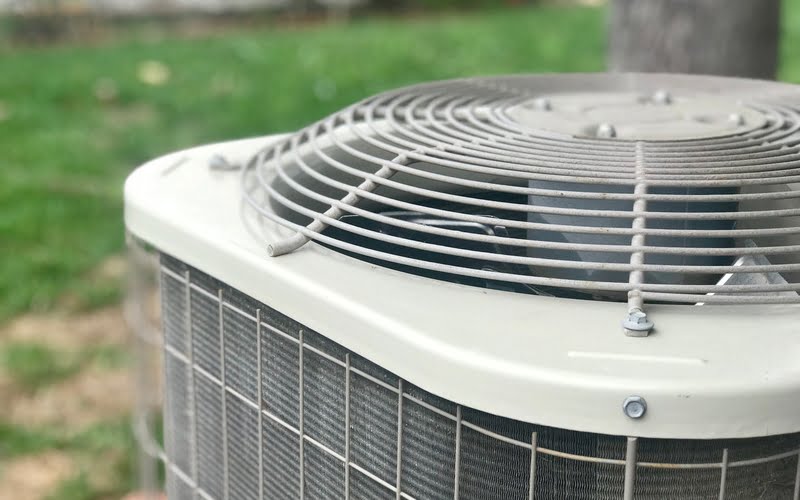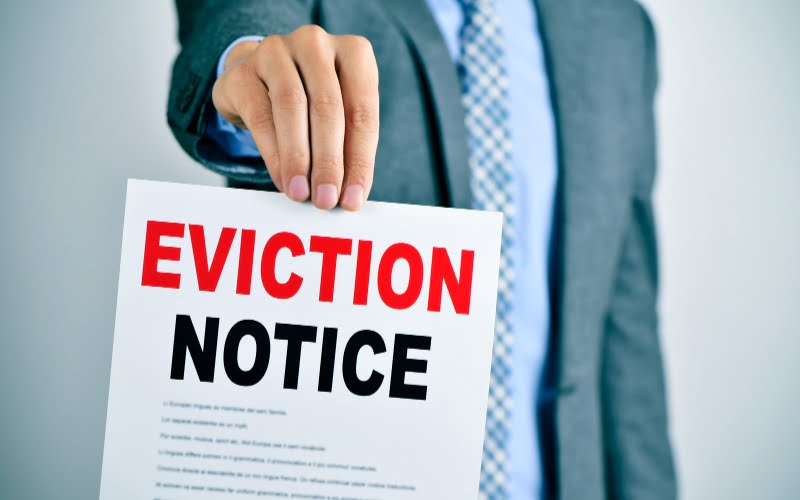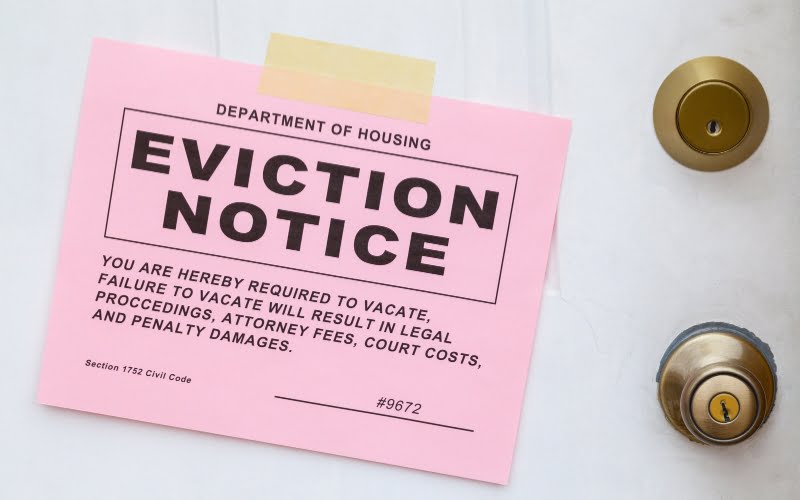Last Updated on March 18, 2024 by Kelvin Nielsen
Are you a renter in Arizona and are looking to learn what your rights are? If so, here’s everything you need to know!
The Arizona Residential Landlord & Tenant Act (ARLTA) gives tenants a raft of rights once a lease is established. Now, Arizona law is particular about how a lease between a landlord and a tenant can be established. It can only be established in any of the following ways.
- If a written agreement exists.
- If an oral agreement exists.
- If payment is accepted as rent.
Additionally, a guest may be able to become a legal tenant if they stay for over 29 days. Here is a guide on how a guest can become a tenant in Arizona.
With the lease established, renters automatically acquire certain rights under ARLTA. And these rights exist regardless of what the lease says.
In today’s blog, we’ll walk you through everything you need to know about renters’ rights in Arizona. This way, you’ll know what you can and can’t do after you become a renter.
What Are My Rights As A Renter in Arizona?
1. You have a right to live in a habitable rental property.
ARLTA gives renters the right to live in a property that meets the state’s basic safety and health codes. According to the Arizona implied warranty of habitability (ARS §33.1341), the landlord must provide the following.
- Hot and cold running water.
- Working plumbing and electrical systems.
- Sufficient trash receptacles.
- A vermin-free premises.
- Safe stairs and railings.
- Safe floors and in good condition.
- Usable, safe, and clean fire exits.
- Working smoke- and carbon monoxide detectors.
- A working HVAC equipment.
In addition, you have a right to timely repairs. For problems affecting your health and/or safety, the landlord must remedy the issue within 5 days. And for all other types of repairs, the landlord must fix them within 10 days. (A.R.S. §33-1363).
If the landlord doesn’t make the repairs within the required time, you may be able to exercise the following rights.
- Break the lease and move out without penalty.
- Repair the issue yourself and deduct the cost from future rent payments.
- File a lawsuit against your landlord if it causes you damage, such as lost wages, medical expenses, or emotional distress.
2. You have a right to a proper eviction process.
The ARLTA gives renters the right to continue living on their rented premises until the landlord has followed the proper eviction process. Regardless of the violation you have committed, the landlord must not resort to illegal eviction methods. Examples of such methods include the following.
- Locking you out.
- Removing your personal belongings from the unit.
- Shutting down a utility.
- Trying to evict you because of your race, color, religion, nationality, or any other protected class.
- Trying to evict you as a retaliatory tactic.
If the landlord retorts to such methods, you can sue them for damages, or file a complaint with the AZ Department of Housing.
In Arizona, a landlord can only evict you for just causes. Examples of these include the following.
- Failure to pay rent when it is due.
- Failure to move out after the expiry of the lease.
- Absence of a lease agreement.
- Violation of the lease by the landlord.
- Illegal acts.
Next, the landlord must obtain a court order (Writ of Restitution) in order for the removal process to be successful. The following is a basic overview of what the tenant eviction process is like in Arizona.
- Get served with an eviction notice. The type of notice will depend on the reason for the eviction. For example, if the eviction is for nonpayment of rent, the landlord must serve you a 5-Day Notice to Vacate.
- Get served with a copy of the Complaint and Summons if the matter remains unresolved.
- File an answer with the court. This will give you an opportunity to offer a defense against the eviction (if any).
- Attend the court hearing and await judgment.
- If the judgment favors your landlord, the court will issue them with a court order which will authorize your removal.
That said, you may still be able to appeal the judgment. If you choose to do this, you must do so within 5 calendar days with the Justice Court.
3. Right to the return of the security deposit.
Under the Arizona security deposit law (§ 33-1431), renters obtain the following rights when it comes to security deposits.
- The landlord must not ask for a security deposit exceeding the rent of one and a half months’ rent. If the monthly rent is, say, $1,000, then the maximum amount the landlord can charge is $1,500.
- The landlord must return the deposit within 14 days of the renter moving out.
- If the landlording is making deductions, then they must provide the renter with an itemized list of deductions.
- The landlord may only make allowable deductions from the deposit. Such as, to cover unpaid rent, to cover damage exceeding normal wear and tear, and other costs resulting from a lease violation.
If the landlord wrongfully withholds the deposit, you may be able to sue for damages, as well as court and attorney fees.
Here is a guide on Arizona security deposit rules.
4. Right to terminate a lease or rental agreement.
You may be able to terminate a periodic lease agreement by serving the landlord with proper notice. The specific amount of notice to serve them will depend on how frequently you pay rent.
If paying rent on a weekly basis, then you must provide the landlord with a 10 days’ advance notice. And if paying rent on a monthly basis, you must provide them a 30 days’ notice.
Arizona renters are also able to break fixed-term leases in certain situations. Including the following:
- If there is an early termination clause.
- If starting an active military duty.
- If the unit becomes uninhabitable.
- If the landlord violates your right to peace and quiet enjoyment.
- If the landlord violates a term of the lease agreement.
In all these cases, you’ll be able to break the lease without penalty as long as you follow the requisite procedure.
However, there are certain reasons that may not allow you to break the lease penalty-free. In such cases, you’ll still be liable for paying all the rent remaining under the lease. Examples of legally unjustified reasons for breaking a lease in Arizona include the following.
- Changing your mind after signing the lease.
- Having a baby.
- Getting married, separated, or divorced.
- Getting a better job offer in a different city.
- Disliking the neighbors or neighborhood.
- Wanting to move to a nicer apartment.
- Wanting to upsize of downsize.
Luckily for you, Arizona landlords have a duty to make reasonable efforts to re-rent their property after a renter breaks their lease early. This means that you may only be liable for paying a fraction of the total rent remaining under the lease if the landlord is able to find a replacement tenant quickly.
5. Right to a proper rent increase.
Arizona is a landlord-friendly state. Among other things, Arizona doesn’t have rent control and state law prohibits cities from enacting their own rent control laws.
What that means is that landlords have the freedom to charge whatever rent they want, raise it by any amount, and as often as they choose.
That said, as a renter in Arizona, you have certain rights when it comes to rent increases.
- The landlord cannot raise the rent during the lease term unless the lease agreement allows for it. They must wait until the current lease term is over to make any changes to the lease.
- The rent increase must not be borne out of discrimination of federally-protected classes or in retaliation.
- The landlord must serve you proper notice prior to the increase. If you pay rent weekly, the landlord must provide you a 10 days’ notice in advance. And if paying rent on a monthly basis, the landlord must provide you a 30 days’ notice.
6. Right to be treated fairly without discrimination.
It’s illegal to discriminate against a renter on the basis of certain protected classes. The Federal Fair Housing Act makes it illegal for landlords to discriminate against tenants on the basis of:
- Race
- Color
- Nationality
- Sex
- Familial status
- Religion
- Disability
This means that a landlord cannot do the following in Arizona.
- Refuse to rent your property to a tenant because they are of a different race or color.
- Charge a tenant more rent because they have children, disabled, or from a different nationality.
- Include discriminative statements in your rental ad. For instance, “Females Preferred,” “No Children,” or “Ideal for Single Professionals.”
- Evict a tenant because of their sex, nationality, or race.
- Refuse to provide reasonable accommodation or make reasonable modification to
Fair housing violations by a landlord, or any other housing provider, can be severe. The landlord can be liable to civil penalties of up to $107,050. The exact amount will depend on the severity of the violation. In addition, the landlord may also be made to pay you actual damages, as well as court and attorney fees.
7. Right to refuse landlord entry.

Sure, landlords in Arizona have a right to enter a rental property as long as they follow the stipulated rules. If they don’t, you may have a right to refuse their entry to your rented premises.
You can refuse entry by the landlord under the following situations.
- If the landlord does not give proper notice. You have a right to a 2 days’ advance notice prior to landlord entry, except in cases of emergencies or a situation where the landlord has a court order.
- If the entry is for illegal reasons. The Arizona Residential Landlord & Tenancy Act specifies the legitimate reasons for landlord entry. Which include: inspecting the property, making repairs, making improvements, responding to emergencies, and showing the property to prospective tenants or buyers.
- If the entry is during an unreasonable time. You must only enter the property during reasonable hours. As a general rule of thumb, this is interpreted to be between 8 am and 6 pm, Monday through Friday. For any other time, the landlord must seek the tenant’s consent.
- If the landlord is entering in an unreasonable manner. The landlord must not, for instance, cause damage to your property or disturb your peace.
With that in mind, please note, however, that you cannot unreasonably refuse entry by the landlord. If you do, the landlord may be able to take legal action against you.
Here is a guide on landlord entry in Arizona.
8. Right to be provided with certain mandatory disclosures.
Before signing the lease and moving into your rented premises, there are certain mandatory disclosures that the landlord must provide you. They must let you know about things like:
- Lead paint concentrations if renting a property built before 1978.
- Educational materials about bed bugs.
- Names and addresses of people involved in managing the property.
- Purpose of non-refundable fees.
- A copy of the Arizona Residential Landlord & Tenant Act.
- Shared utilities arrangements.
Frequently Asked Questions (FAQs): What Are My Rights As a Renter in Arizona?
Q: What are tenants’ rights without a lease in Arizona?
A: Even without a lease, Arizona tenants enjoy certain rights under the state’s Residential Landlord & Tenant Act. The tenant has a right to quiet enjoyment, reasonable notice before lease termination, habitable rental conditions, and a right to privacy.
In addition, the landlord must follow the proper removal process to evict a tenant without a lease. The landlord must not resort to unjust removal practices.
Q: How long does a landlord have to make repairs in Arizona?
A: A landlord must make repairs within 5-10 days after proper notification. If the issue impacts the tenant’s safety or health, the repair must be done within 5 days. For all other repairs, the landlord must fix them within 10 days. You can learn more here.
Q: Can a tenant withhold rent in Arizona?
A: No! This is not one of the legal options tenants have if a landlord refuses to make a repair within the proper time-frame (5-10 days). If you do so, the landlord may be able to evict you from the property for nonpayment of rent.
What you can do, however, is repair the issue yourself and then make appropriate deductions from future rent payments.
Q: Can a family of 4 live in a 1 bedroom apartment in Arizona?
A: The occupancy limit for a 1 bedroom apartment in Arizona is “2+1”. This means that a 1 bedroom apartment can house a maximum of two persons per bedroom plus one infant.
Some exceptions to the rule, however do exist. For instance, a landlord may be able to allow a family with more than 2 children to live in a 1 bedroom apartment if the children are aged 12 or below. Also, the landlord may allow a disabled tenant to have an additional occupant if they require specialized care of assistance.
Q: What rights do tenants have when landlord sells property in Arizona?
A: Arizona tenants still get to enjoy a raft of rights even after the ownership of the property they are residing in has changed hands. Here is a comprehensive guide in regards to tenant rights when a landlord sells property.
Q: What are AZ tenant rights during a move-out inspection?
A: Tenants in Arizona have the following rights when it comes to a move-out inspection.
- The right to be present so that you can dispute illegitimate claims.
- The right to have a copy of the inspection report.
- The right to dispute the inspection report.
- The right to the return of the deposit, less allowable deductions.
Q: What are Arizona tenant rights to plumbing repairs?
A: The ARLTA gives tenants the right to live in a habitable rental property. As such, you have a right to have plumbing repairs fixed as soon as possible. Specifically, for plumbing issues impacting your health or safety, the landlord must do the repairs within 5 days. For all other issues, the repairs must be done within 10 days.
Examples of serious plumbing issues include the following.
- Clogged main sewer line.
- Leaking water heater.
- Broken water main.
- Frozen pipes.
- Backflow.
Q: Are landlords responsible for bed bugs in Arizona?
A: Yes, landlords are responsible for bed bug control and other pest infestations. There are some exceptions, though. One, landlords aren’t responsible for bed bug control in single-family homes, unless the infestation arises from landlord negligence.
And two, the lease agreement may make the tenant responsible for bed bug control. In which case, the agreement will absolve the landlord from any responsibility.
Landlords are also required to provide tenants with bed bug educational materials. The materials must include information regarding bed bugs, as well as how to prevent bed bugs, and how to treat a bed bug infestation.
Q: How much notice does a landlord have to give a tenant to move out in Arizona?
A: The amount of notice a landlord must give a tenant to move out will depend on the rent payment frequency. If the tenant pays rent on a weekly basis, then the landlord must serve a 10 days advance notice. And if rent is paid on a monthly basis, the landlord must serve the tenant a 30 days’ advance notice.
There are statutory requirements on how much notice to serve tenants paying rent on a quarterly or yearly basis.
Q: Can a landlord enter your apartment without permission in Arizona?
A: Here is a comprehensive guide on the topic – https://landlordtenantresource.com/can-a-landlord-enter-without-permission-arizona/
Q: What are some of the things a landlord cannot do in Arizona?
A: Here is a comprehensive guide on the topic – https://landlordtenantresource.com/what-a-landlord-cannot-do-arizona/,
Conclusion
So, there you have it. The rights renters have in Arizona under the state’s Residential Landlord & Tenant Act. And these rights exist regardless of the lease saying otherwise. If your landlord violates any of these rights, you may be able to file a complaint with the Arizona Department of Housing or take legal action against your landlord.
Disclosure: The content herein isn’t a substitute for advice from a professional attorney. It’s only meant to serve educational purposes. If you have a specific question, kindly seek expert attorney services.
Sources: https://www.azleg.gov/, https://law.justia.com/, https://agriculture.az.gov/pests-pest-control/household-pests/bed-bugs, https://www.azlawhelp.org/, https://www.hud.gov/,

Hi, I’m Kelvin Nielsen, an experienced landlord and accomplished real estate lawyer. My focus is on answering your questions about renting in the hopes of making your life as a renter or a landlord a bit easier.







